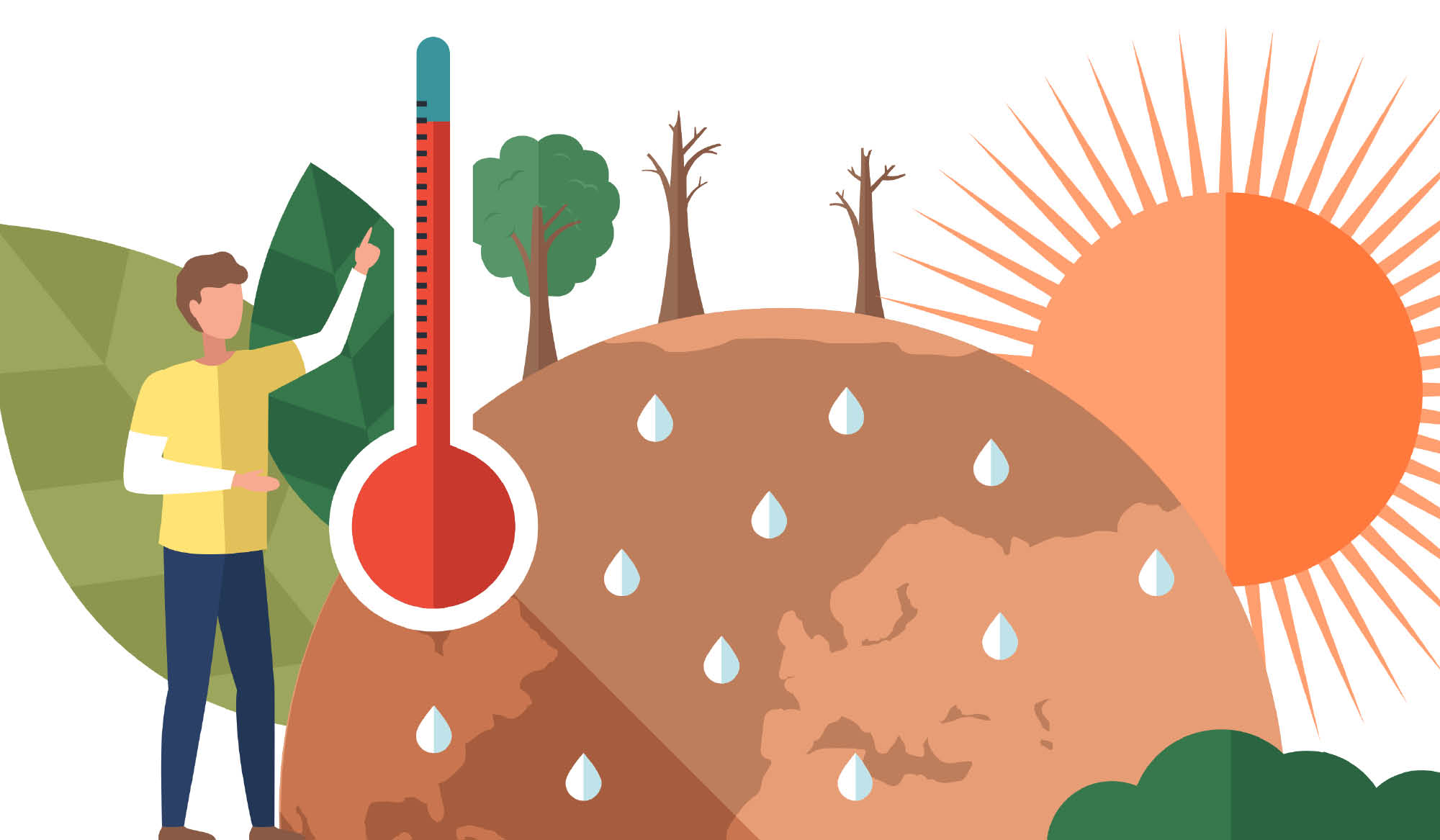
A new fund for the most vulnerable countries was agreed upon at the 27th World Climate Conference. It is intended to support the countries in dealing with the damage caused by climate change. However, important questions remained unanswered.
The 27th United Nations Climate Change Conference (COP27) in Sharm el-Sheik, Egypt ended on November 20h 2022. Important topics were the adoption of a work program for climate protection and solutions for dealing with the damage caused by climate change. The countries agreed on a work program until 2026. However, this does not explicitly include the countries with the highest greenhouse gas emissions. Switzerland regrets this decision and would like to ensure that these countries also do their share. A new fund has been agreed upon for the most vulnerable countries to support them in dealing with the damage caused by climate change. Switzerland welcomes the additional aid in principle. However, key issues surrounding the fund still need to be clarified.
Countries with the highest greenhouse gas emissions must be involved
A concrete work program for climate protection should be adopted at COP27. This was the commitment of last year's COP26 in Glasgow. The countries have now agreed on such a program for the period up to 2026. However, this does not specifically place the countries with the highest greenhouse gas emissions under any obligation. Switzerland regrets this decision. It will work to ensure that these countries also contribute, so that the 1.5 degrees target can still be achieved. The Paris Agreement obliges all countries to take concrete steps to reduce their greenhouse gas emissions from 2020 to limit global warming to 1.5 degrees Celsius.
Phase out coal and reduce subsidies for oil and natural gas
No decisions were made, however, on phasing out coal and reducing subsidies for oil and natural gas. Countries with the largest greenhouse gas emissions, such as China, India, Indonesia and Brazil, reject a corresponding work program and commitment to implementation plans. Concrete measures to align global financial flows with the 1.5-degree target were rejected by a group of developing countries.
Fund to help the most vulnerable countries deal with damage
Climate change affects the poorest countries and island states particularly hard. At COP27, countries agreed on a new fund to help the most vulnerable countries deal with damage from climate change, such as floods or droughts. Switzerland advocated at the COP that the fund should benefit the most vulnerable developing countries. Switzerland welcomes the additional aid in principle. However, it regrets that important questions have not been clarified. For example, it remains open which countries should contribute to the fund, how the money will be distributed and who will administer the fund. Switzerland intends to work to ensure that these questions are clarified as quickly as possible.
Important progress was made in implementing the Santiago Network. This network of UN institutions and NGOs can now provide technical assistance to countries particularly affected by climate disasters, for example in setting up early warning systems.
Switzerland supports existing funds through contributions
In addition, Switzerland has announced contributions to existing climate finance funds. Subject to parliamentary approval, it plans to contribute CHF 155.4 million to the Global Environment Fund, CHF 11.8 million to the Special Climate Change Fund (SCCF) and CHF 16 million to the Least Developed Countries Fund, LDCF. The last two funds focus on adaptation measures in Least Developed Countries (LDCs) and Small Island Developing States (SIDS). With these contributions, Switzerland wants to underline its commitment to make a fair contribution to international climate finance.
Switzerland will also contribute a further CHF 8 million to the World Bank's Disaster Risk Financing and Insurance (DRFI) program to strengthen the resilience of partner countries. Finally, Switzerland will contribute CHF 4 million to the CREWS initiative, which ensures a financing mechanism to address the needs of LDCs and SIDS.